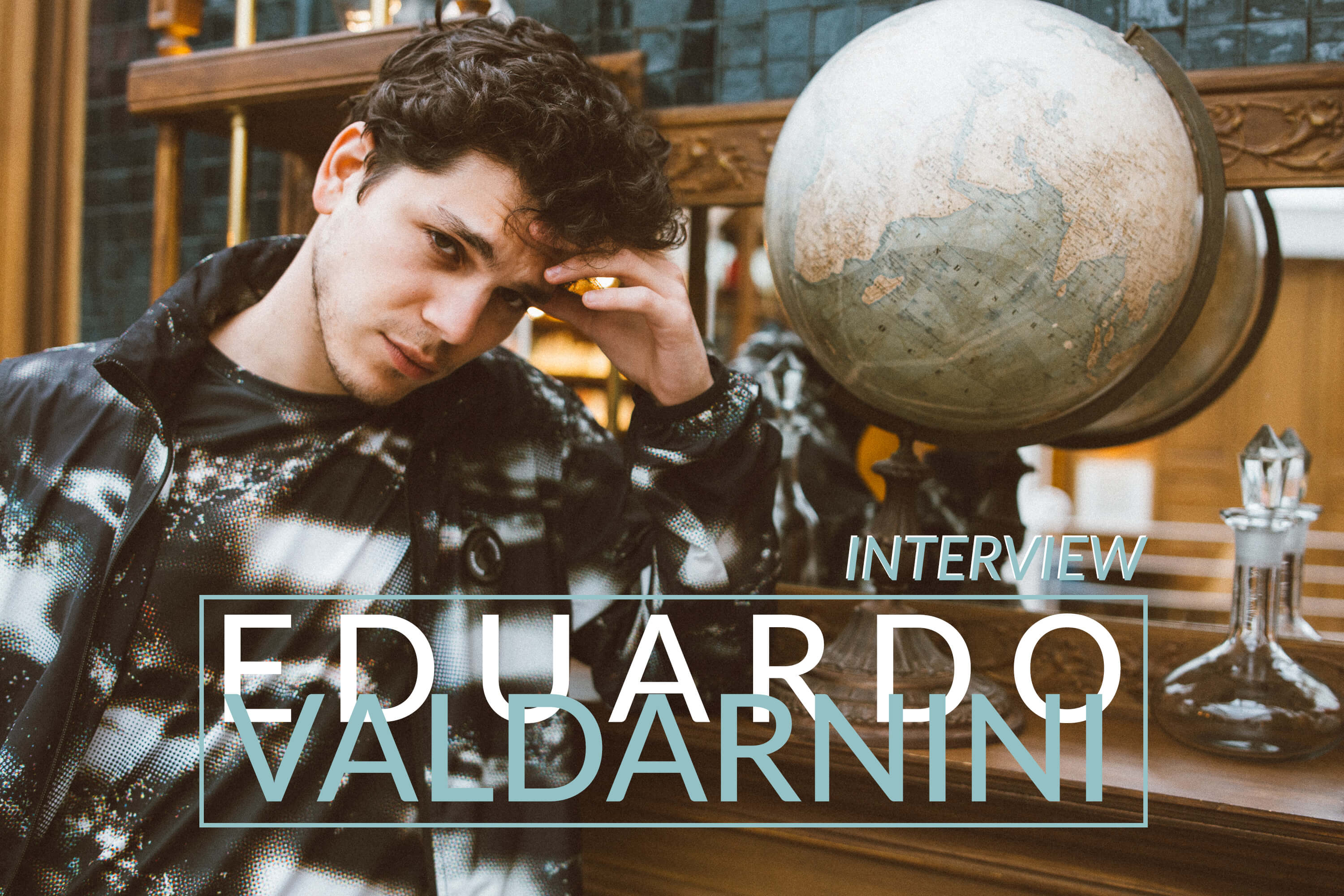Aliens, small trees, and Vitangelo Moscarda.
No, we’re not talking about one of Pirandello’s novels in an imaginary post-apocalyptic world. We are talking about Eduardo Valdarnini who would like to play a crazy character, like Vintangelo Moscarda, a madman who could never exist in reality but that is absolutely credible. Eduardo imagines the unreal (including aliens) according to the Meisner method, and his first important role as an actor was that of a small tree during a Christmas school play.
We met Eduardo in Paris, where he has been living and writing for 4 years now, and here we had the opportunity to talk about everything, from his latest Netflix series “Suburra 2,” to the feature film he’s writing, to giving importance to words.
Have you always known that you wanted to be an actor?
_______________
No, I haven’t, even if there is an anecdote that comes out every once in a while, that my mother told me recently: when I was nine, during the classic Christmas show in which I was a little tree, when they asked me what I wanted to do when I grew up, I said …
…a small tree!
_______________
Exactly, I want to be a tree, I want to be part of nature so these days I’m going through transplants to make my legs like roots… [laughs]
At that moment I said, “I want to be an actor,” but I think it was only because I was doing that thing at that moment. But the reality is that I discovered it around the age of 18 because I worked with a friend of mine on a short film, she was doing with her Film school, I liked it, they encouraged me to continue and I continued.
After high school, I started studying sociology because I didn’t know what to do, but actually, I knew I wanted to do something different like creative writing or screenwriting.
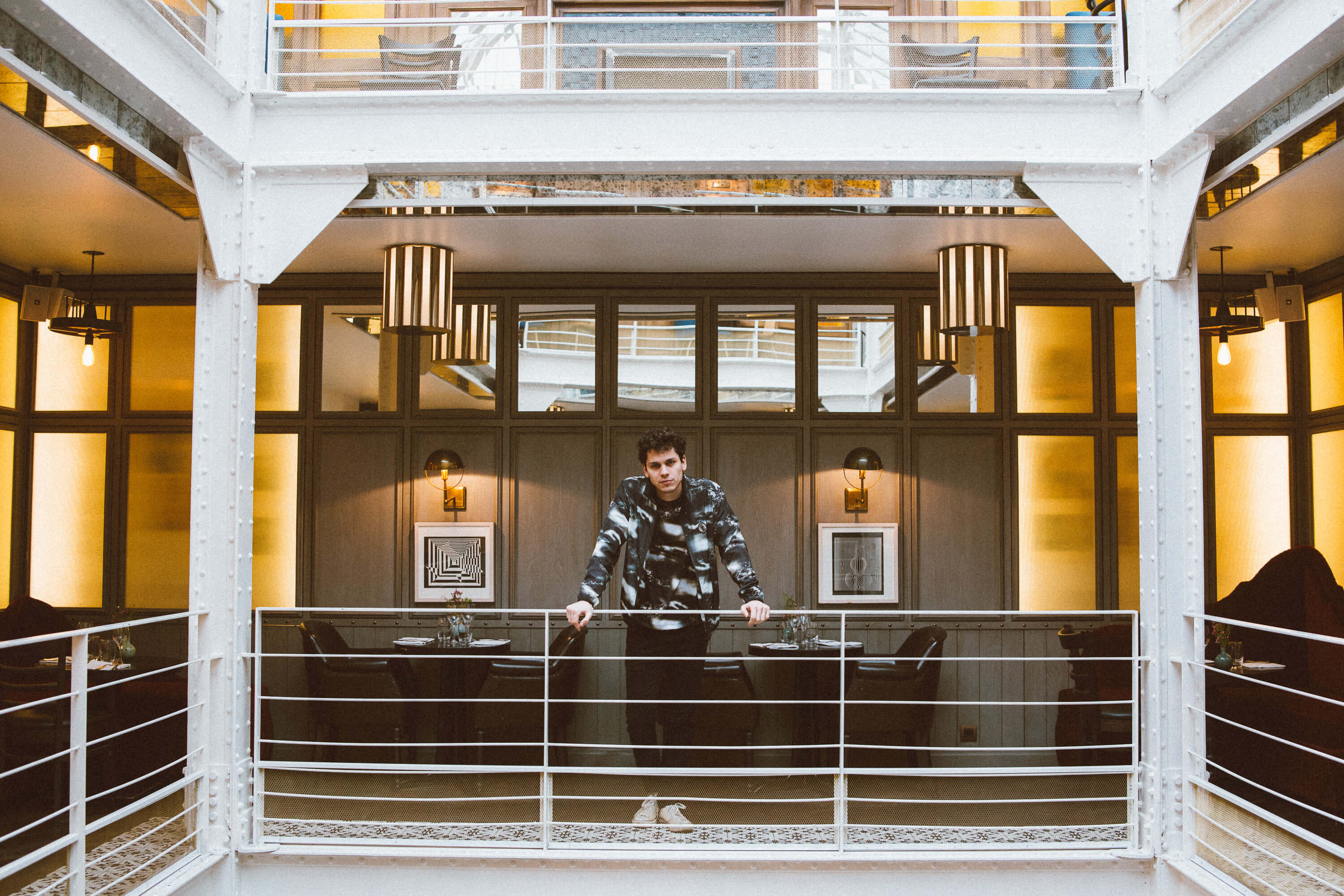
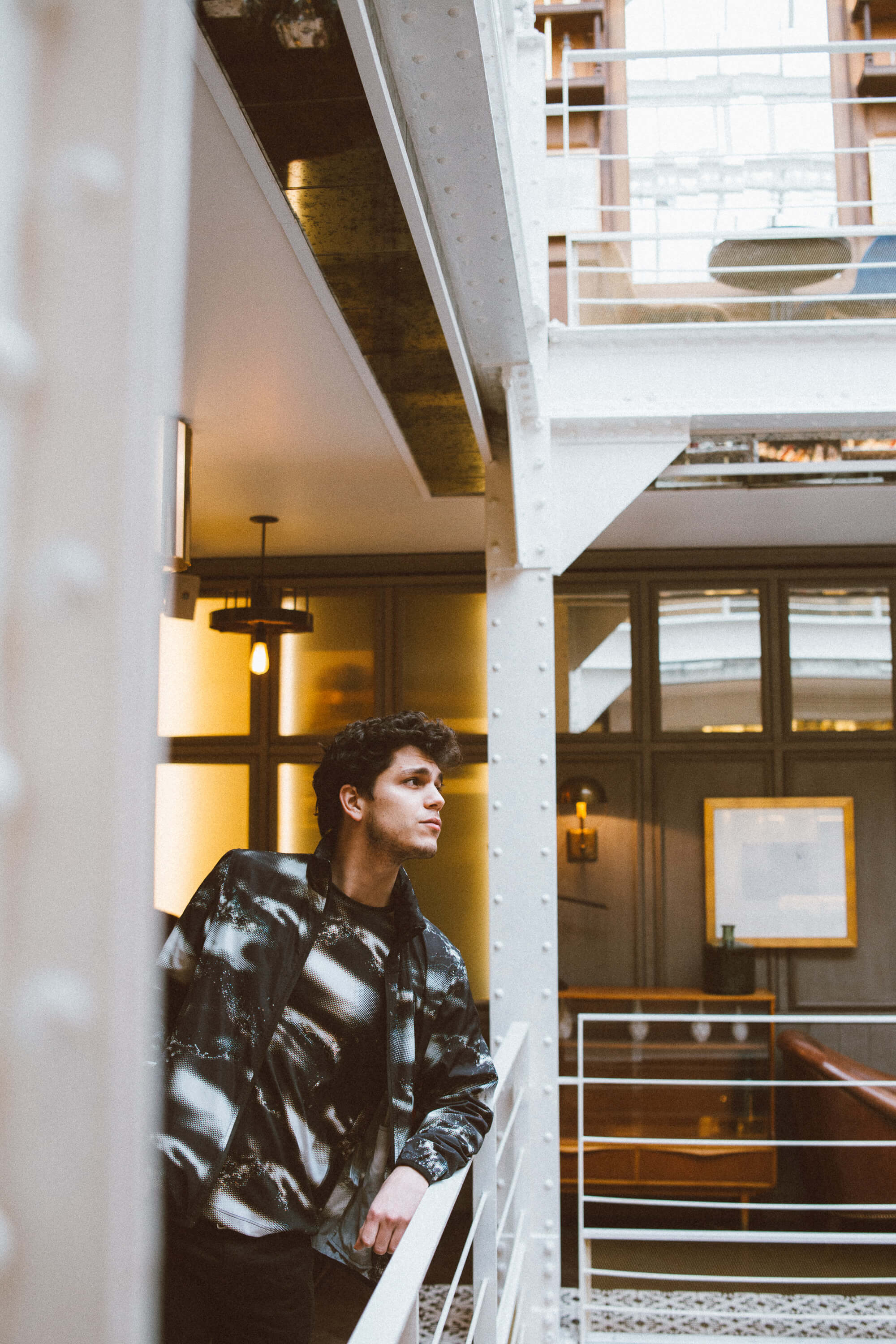
You said about “Suburra:” “an immense project that has bewitched me and pushed me to discover myself.” What did you find out about yourself?
_______________
It was rather the path that made me discover something about me. Discovering is what you also study academically speaking, they teach you about vulnerability, openness, being available to others. All beautiful words but until you try it, you can’t really know.
I had already tried these sensations before, but the atmosphere and timing are always different: being a series, there is a lot of time and this means constantly testing yourself with everything concerning the set beyond the scene, the moods of the other actors on set and off the set, the relationships we created, everything is part of discovering myself. This is a big possibility, beyond the result of the series, this is the side that has touched me the most.
The final result is relative, what matters is the path.
For the actor, there is no magic in the final result: make-up, hair, scenography, editing and lines that are cut out. The beauty is to see the comments from the public, for the public, there is the magic in the result, for me it’s in the journey.
“Politics, family and religion: nothing is sacred.” How much does this become even more true in season two?
_______________
I must say that there has been an evolution in facing certain issues. In the first season, many interesting themes were faced but sometimes only by scratching the surface. In the second season, in my opinion, you can see more about a lot of issues that maybe are less appealing, but they are very well developed, like politics and religion, they take more space and weight and they all intertwine very well with all the parts of crime that were thoroughly developed in the first season. In my opinion, the plot is more successful in this season.
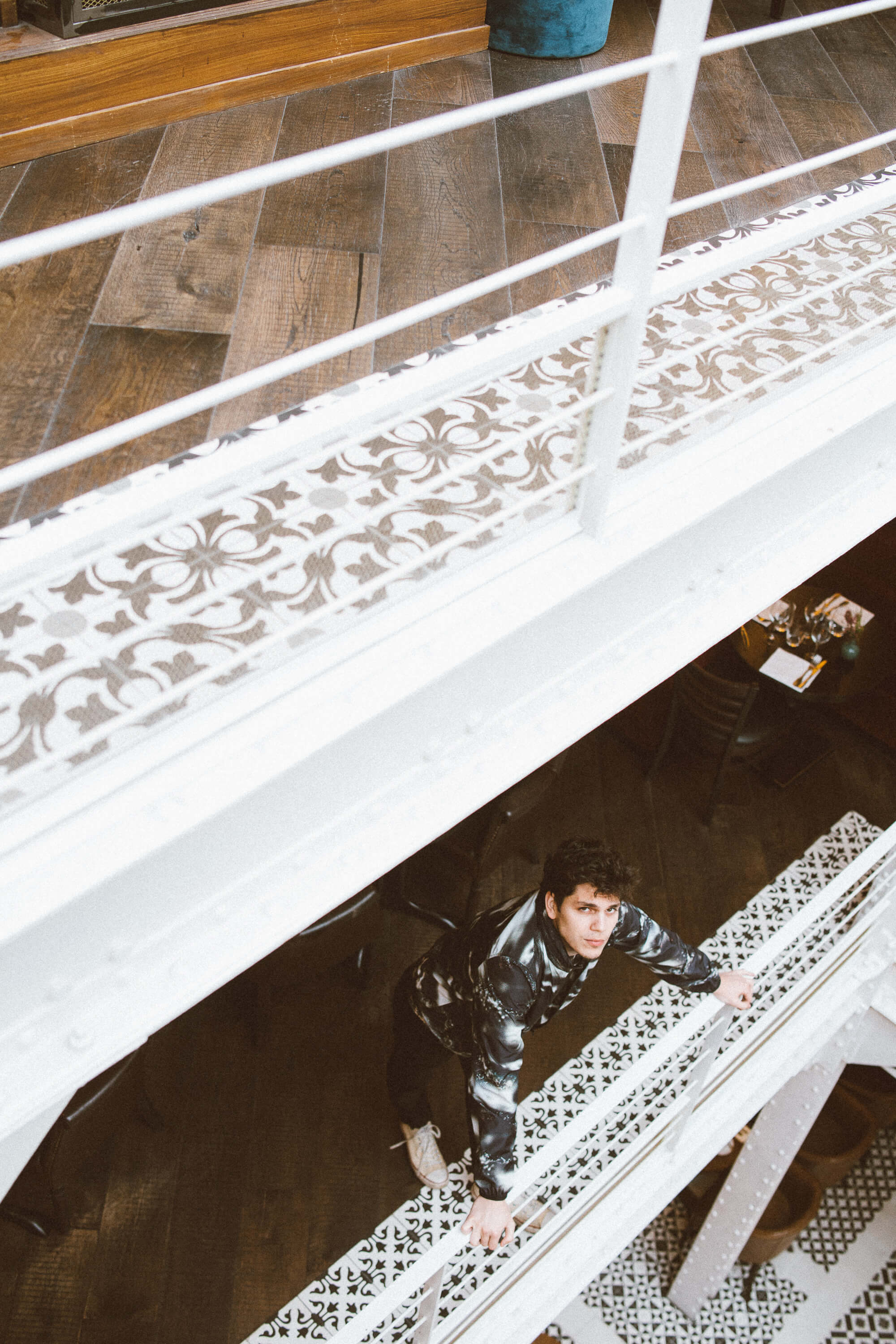
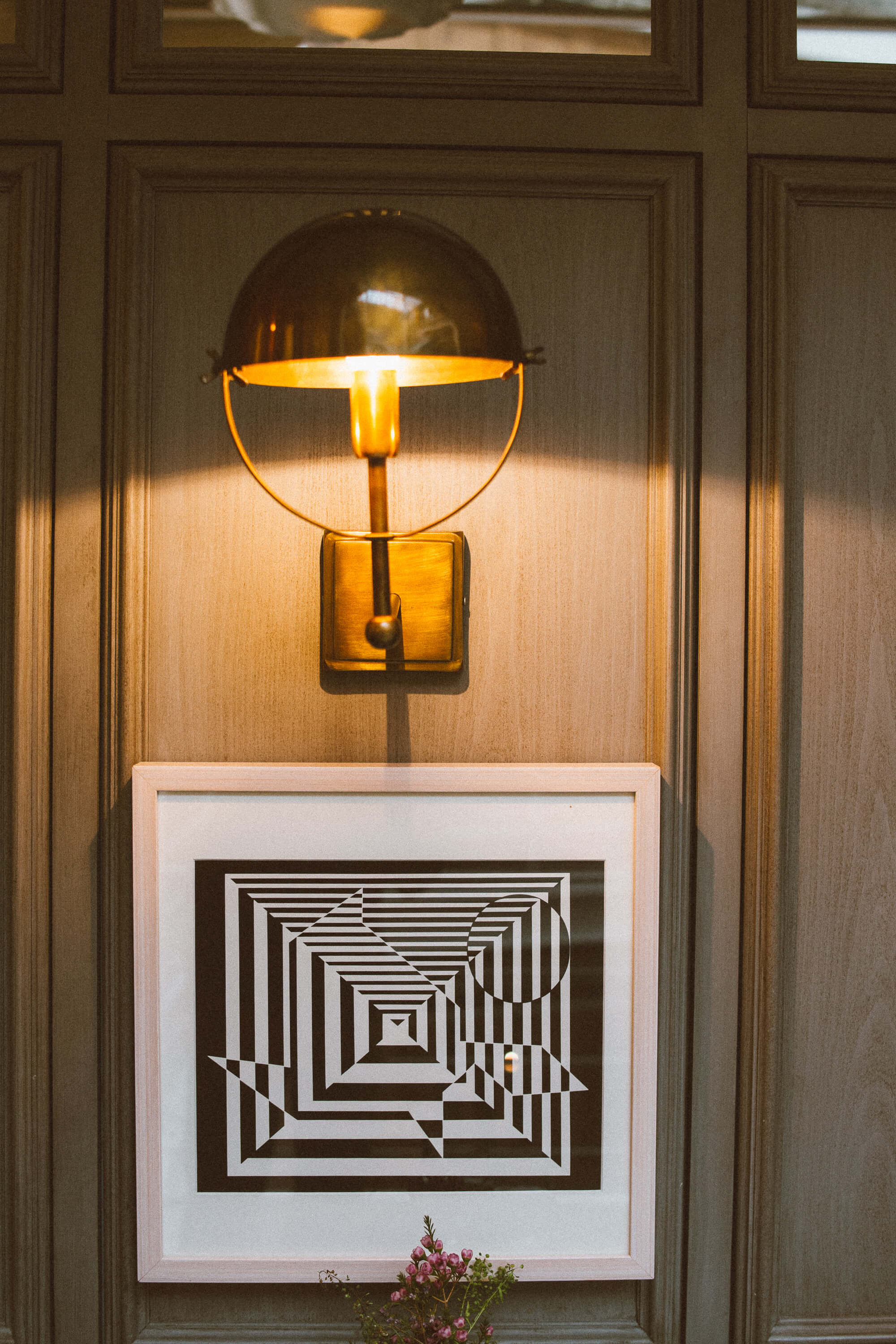
“There is the magic in the result, for me it’s in the journey.”
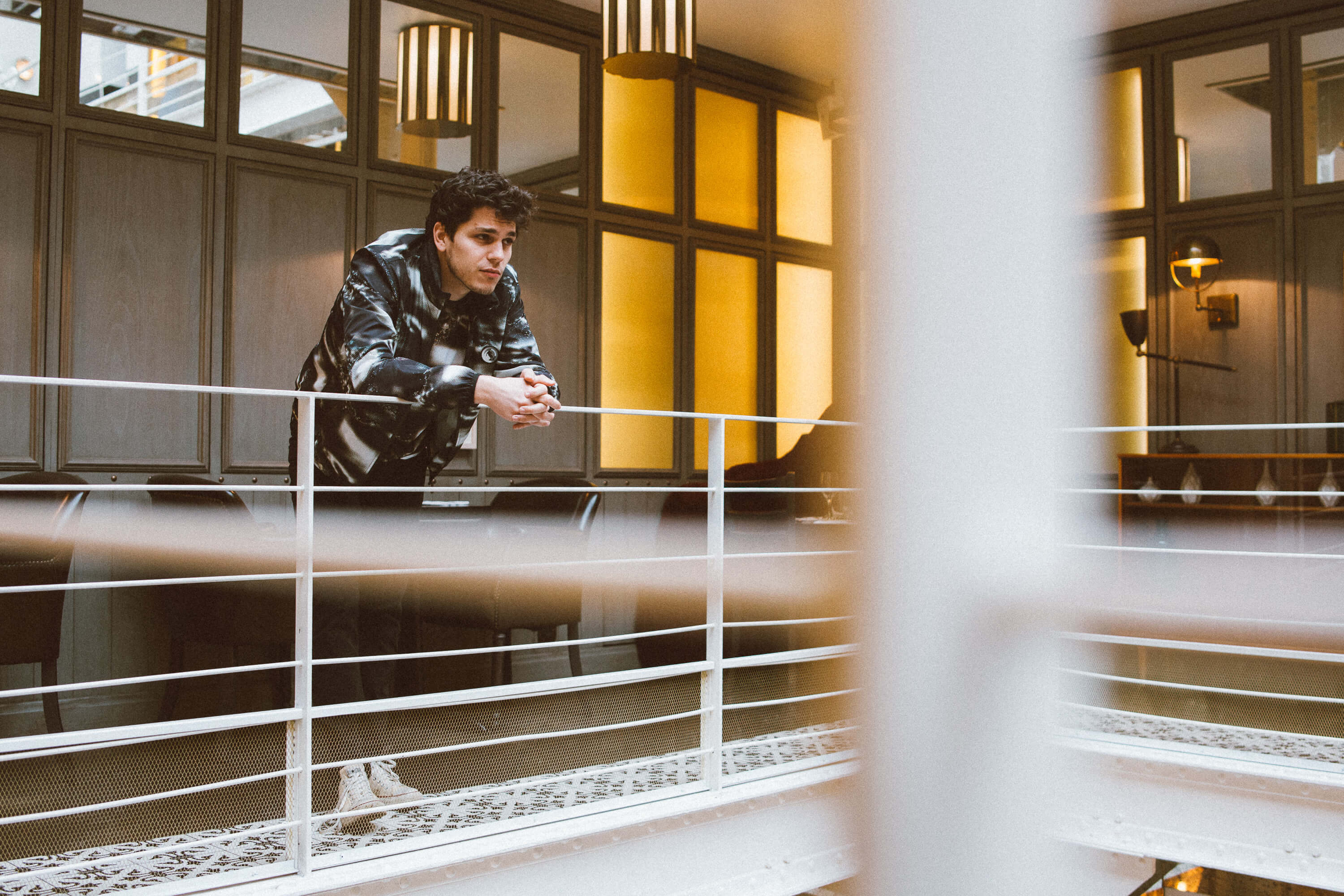
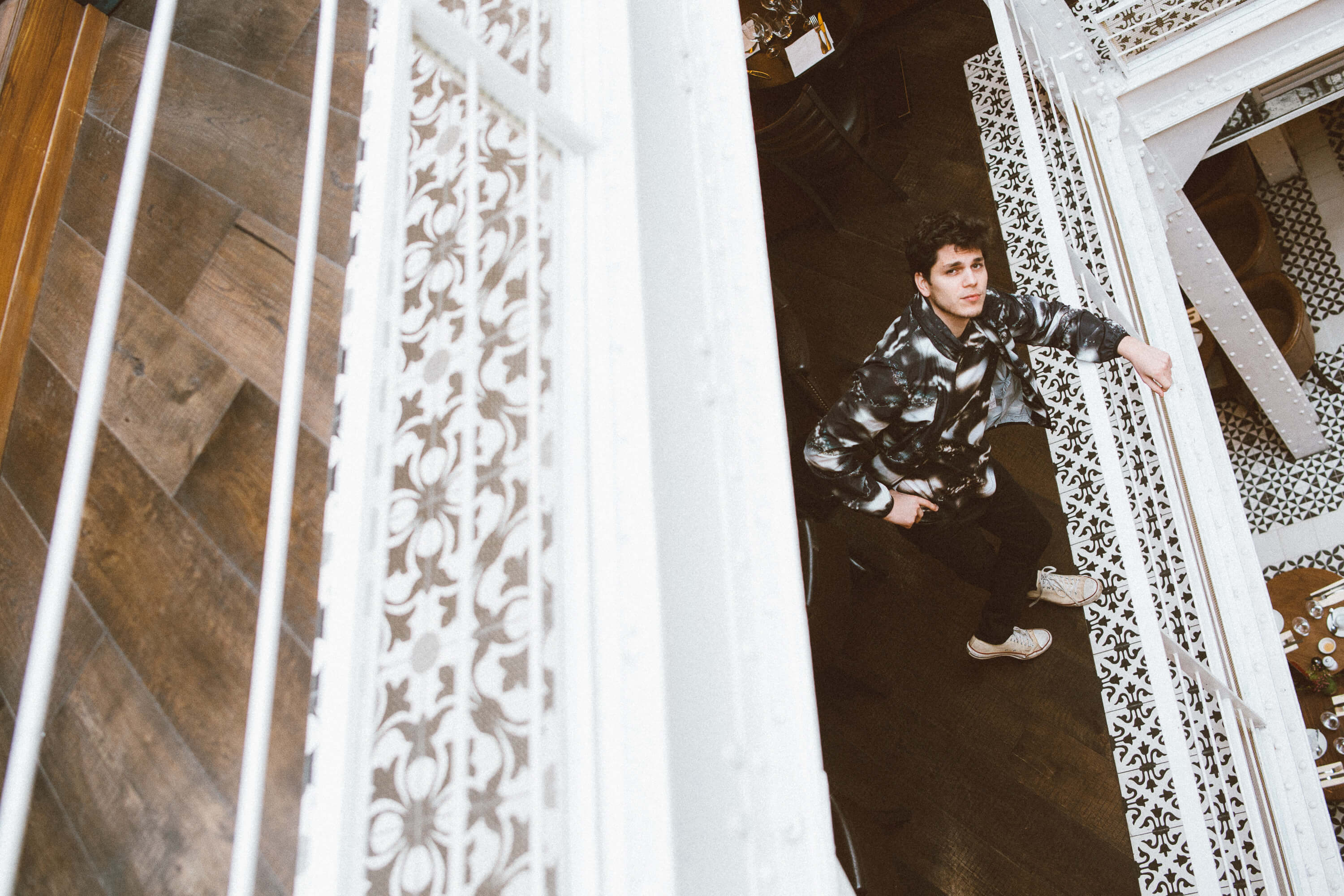
Your character changes a lot, he becomes more convinced and confident. How did you work on this change?
_______________
His almost “magical” jump from law student to assistant-inspector of Ostia is motivated by the hand of Samurai. I acquired the hardness because I had the opportunity to spend some time with police officers in Rome and they showed me and told me about the aspects that make you understand that you need to harden in a world like that. What they told me, it was almost like a movie.
I imagined myself as one of them 30 years earlier, at my age, what led them to become like this.
Like Gabriele, I already had a certain hardness coming from the events of the first season and this add with the new challenges about a role that it’s not well deserved. Hardness will then become a way to no longer live in fear, as it was in the first season.
What was instead the most intense scene you had to shoot?
_______________
I don’t want to spoiler anything. The sixth episode is the one I remember with greater intensity, given the conditions in which we were filming, but I must say that perhaps the hardest one, by all means, was the last scene of the season, which put me to test and that touched us guys the most.
How was the mood on the set?
_______________
The mood was wonderful, we all already knew each other. We integrated new cast and crew members but getting together was a pleasure. A work environment I think you will find once in a lifetime, it will be tough to find again that cohesion and alchemy on set.
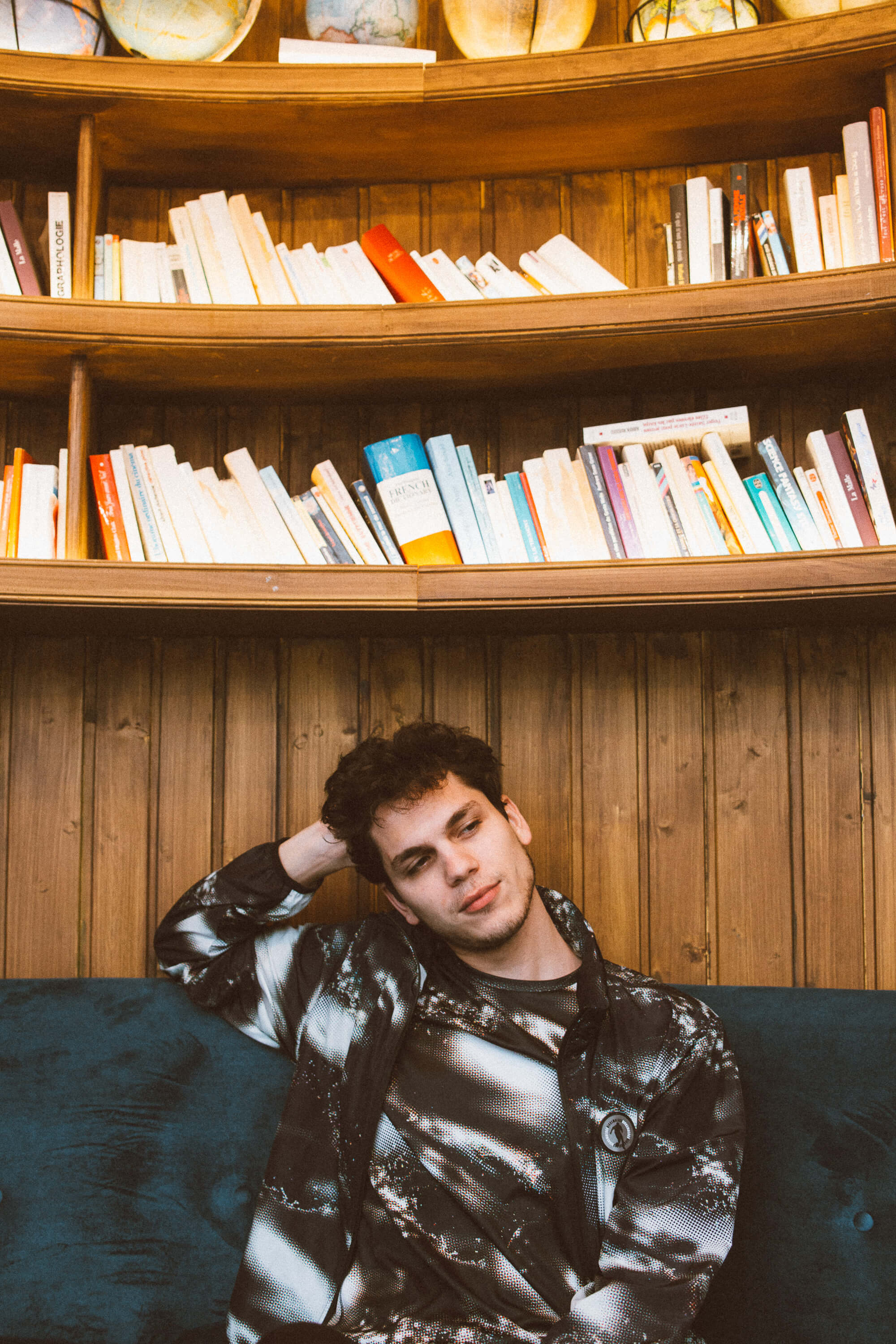
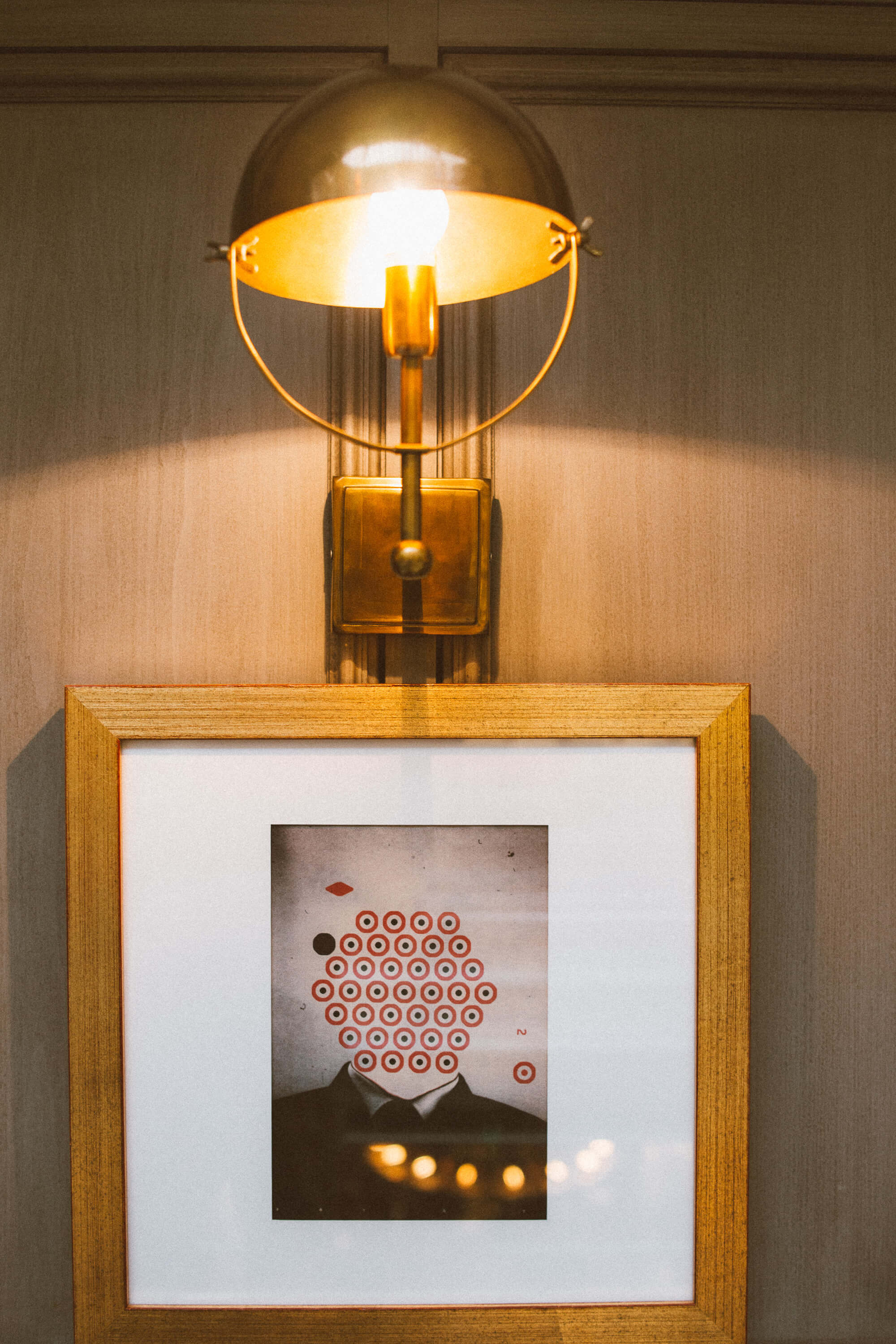
“…A work environment I think you will find once in a lifetime.”
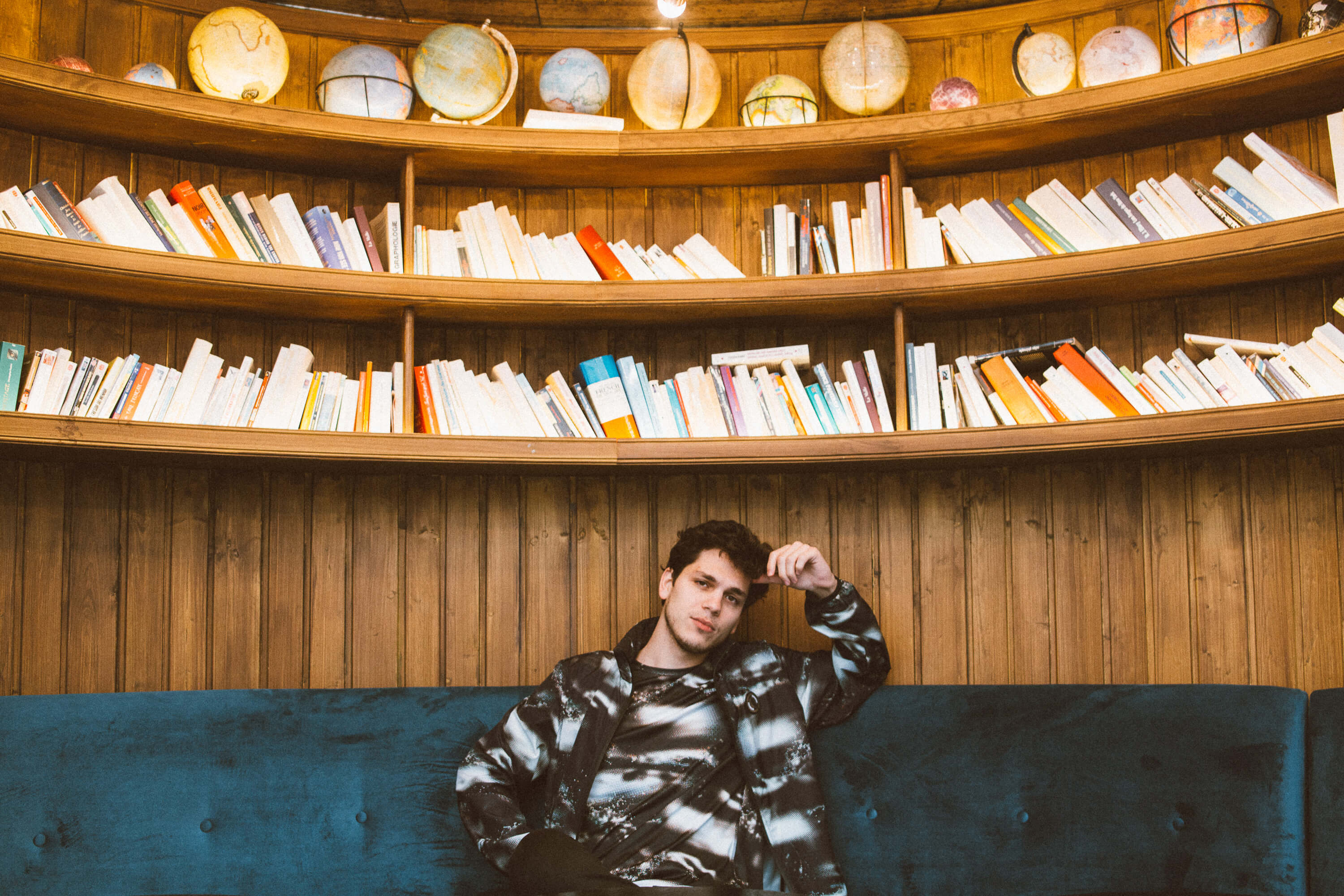
How do you feel about being part of such a global phenomenon as Netflix?
_______________
I say that I was lucky enough to be able to work there. It has great potential, you say “shit” as a human being watching those impressive numbers. Having said that, for me it’s an important professional result that brought me into a great production.
Of course, today it has an important commercial level, but in cinema: one second you are in, the other you are out.
Have you ever thought of writing something of yours?
_______________
I’m writing right now. I’m learning to manage downtime and I’ve been writing a movie for the past 5 months with a French friend of mine. He encourages and pushes me by giving me deadlines.
Between one walk and the other with the dog, I dedicate myself to writing this feature film.
I have been writing in general for 10 years. I also wrote a book but it’s at my house, it’s there and that’s ok like that.
An epic fail on the job?
_______________
It happened to me recently with the editor of “Suburra 2.” I had mistaken him with another person and when I saw him, he asked me, “So you liked the series?” and I replied “Oh yes, very beautiful! And you, have you seen it?” and he,” Ehm, I edited it.”
Okay, I’m going to drink, bye [laughs].
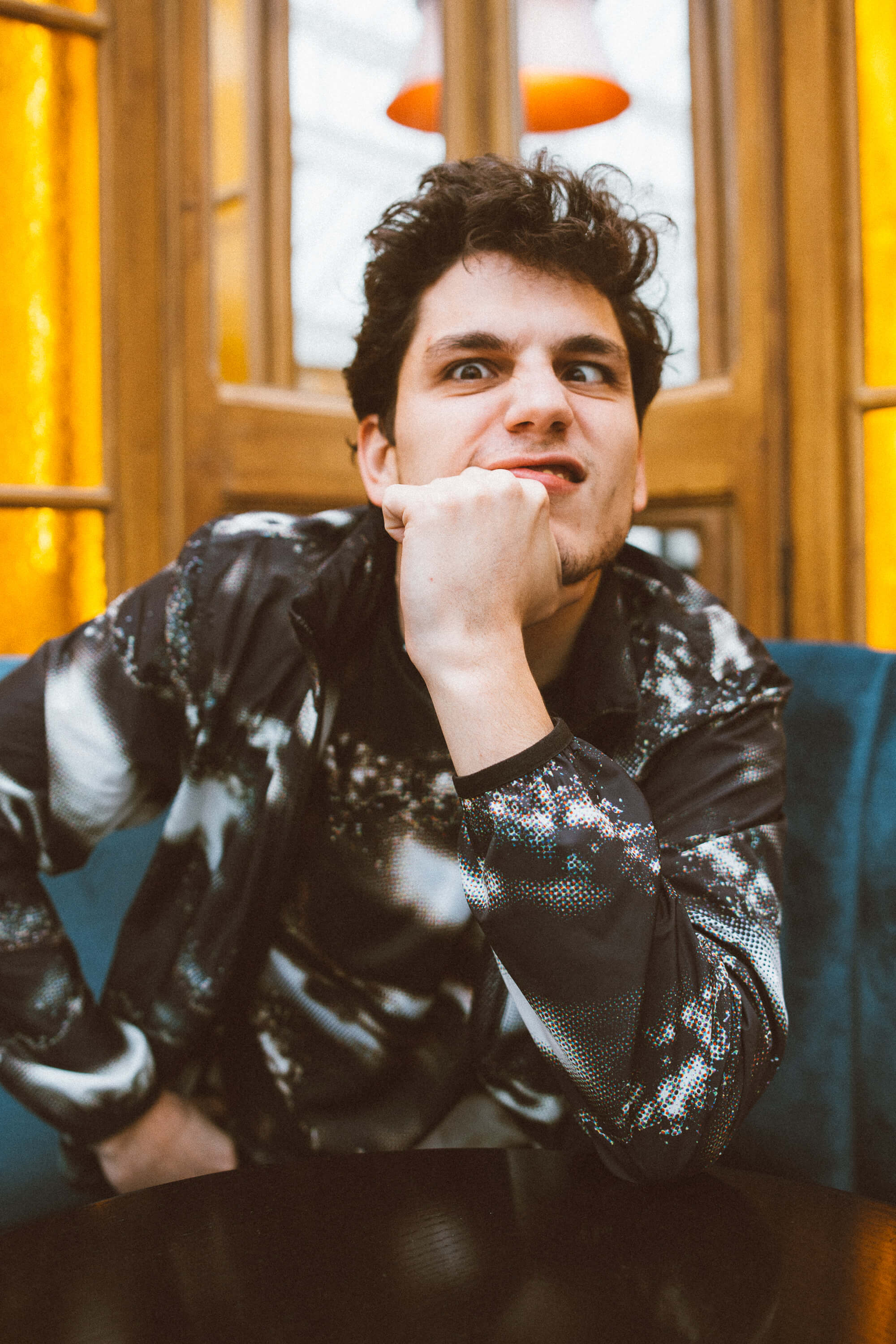
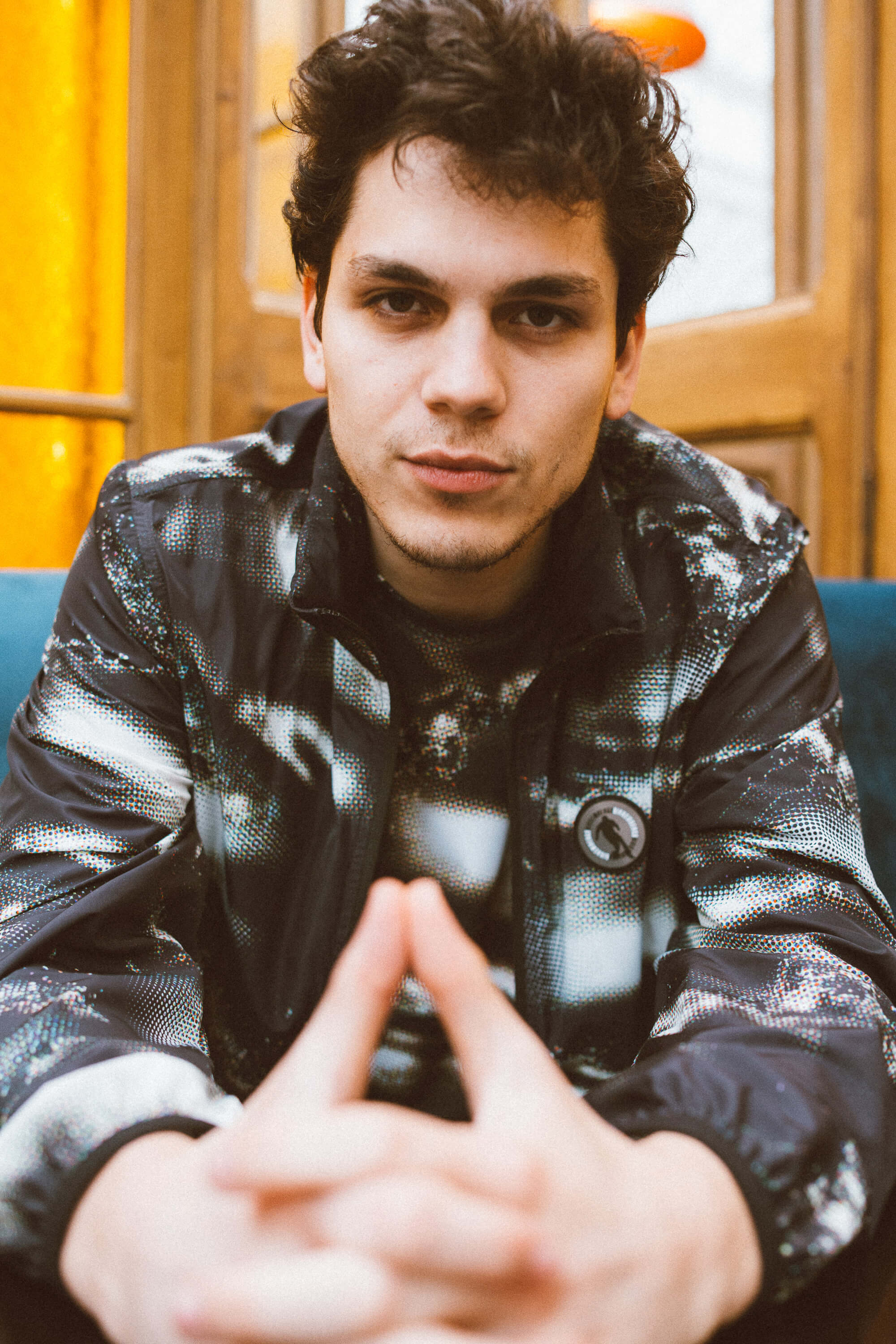
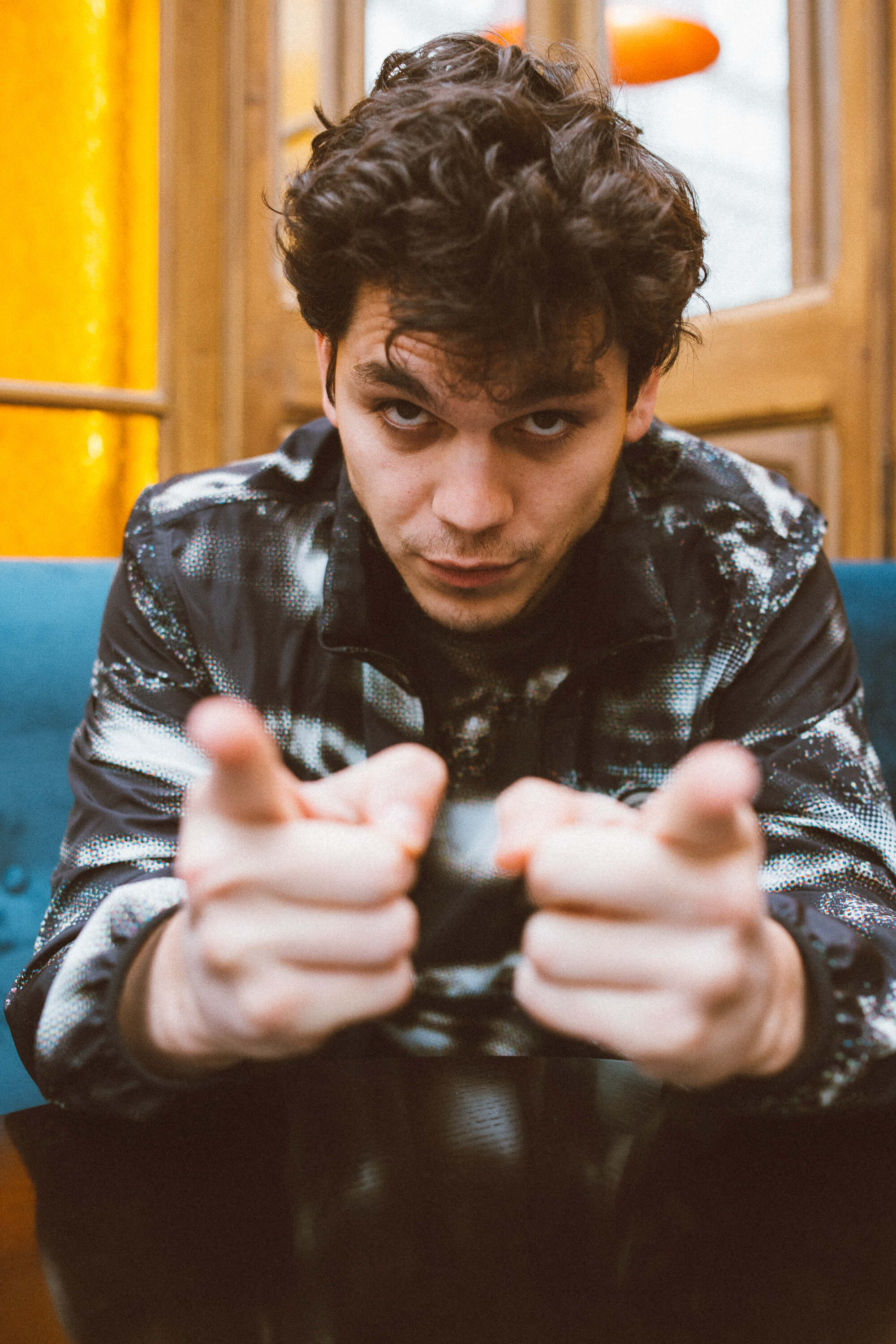
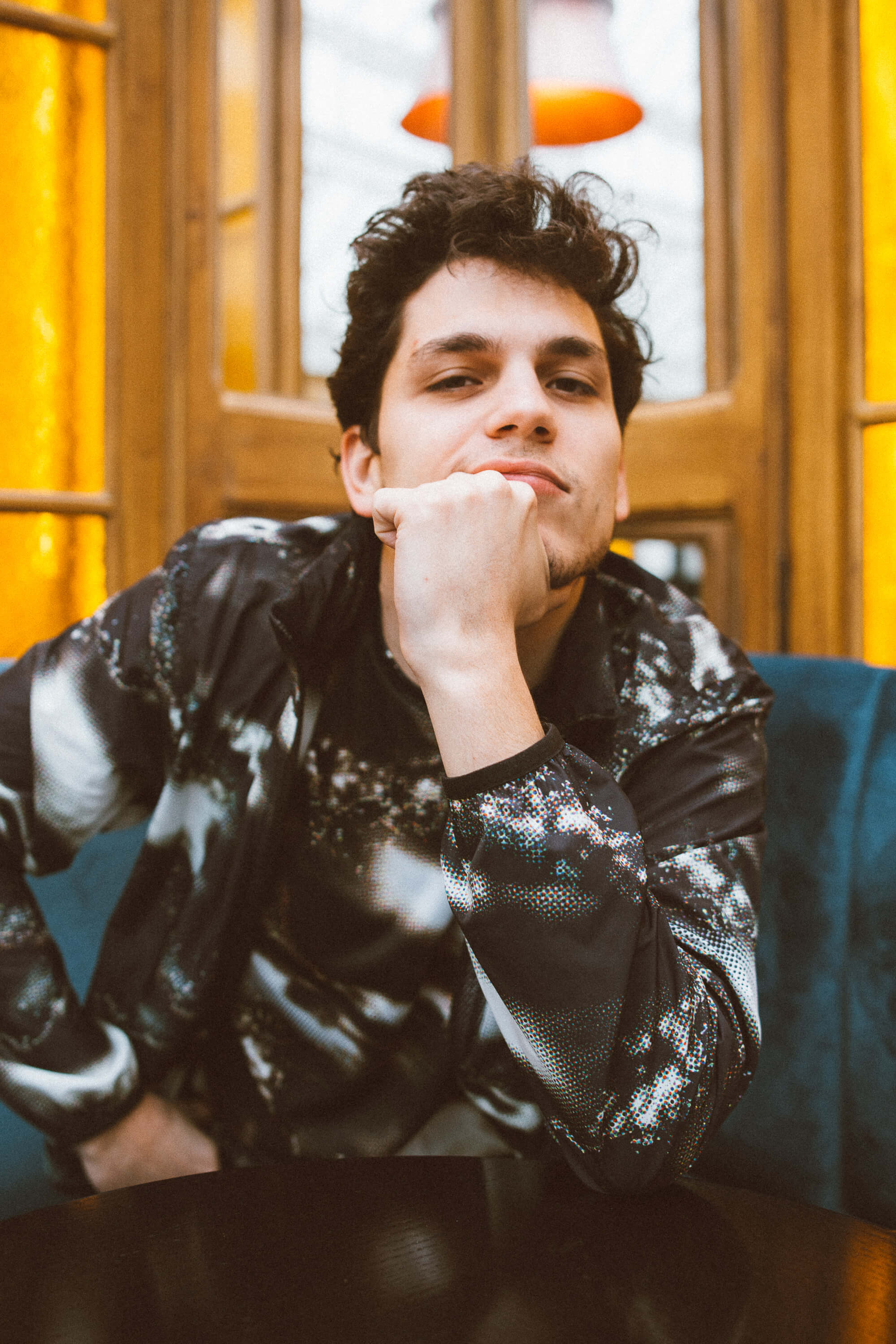
A character you’d like to play?
_______________
The coolest characters are those by Luigi Pirandello. I don’t want to play one of them, they have already been played. I would rather play a Pirandellian character, psychological dreamlike, those characters that could exist in reality but who will never exist, they include completely fantastic and credible elements in the real world. Vitangelo Moscarda, in “One, No One, One Hundred Thousand” is a basically a fool but he creates fantasies that you would normally find in a mad man on the street or in nobody. They are credibly real characters.
If you could go to dinner with three people from the past or present, who would you choose?
_______________
From the past, my grandfather, I never knew him, for me he’s very famous because I always hear talking about him, I would like to have a chat with him. Then, as an actor, I would say Marcello Mastroianni, but it’s up to you to choose which one is more important [laughs]. Even just to ask him how he does his job and what’s on his mind.
From the present, maybe Will Smith because he’s fun. Another actor I would love to meet is Michael Fassbender or Woody Harrelson, whom I’ve just seen in “Larry” and he’s always crazy. He had the opportunity to play roles that start from normality and then, at some point, deviate and become mad. I’d like to ask him: “What’s in your brain?”
From the future, me. To ask myself how I got there.
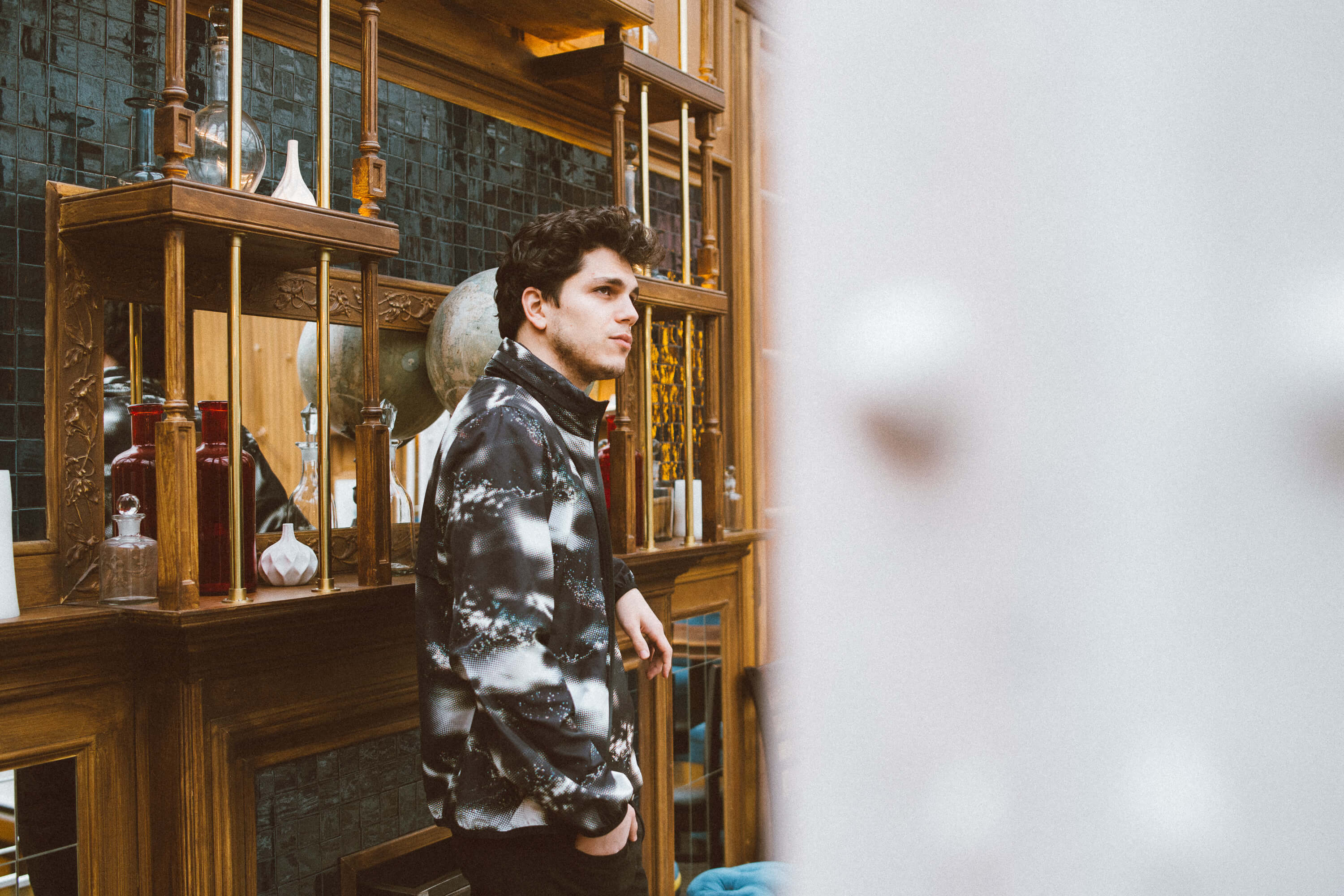
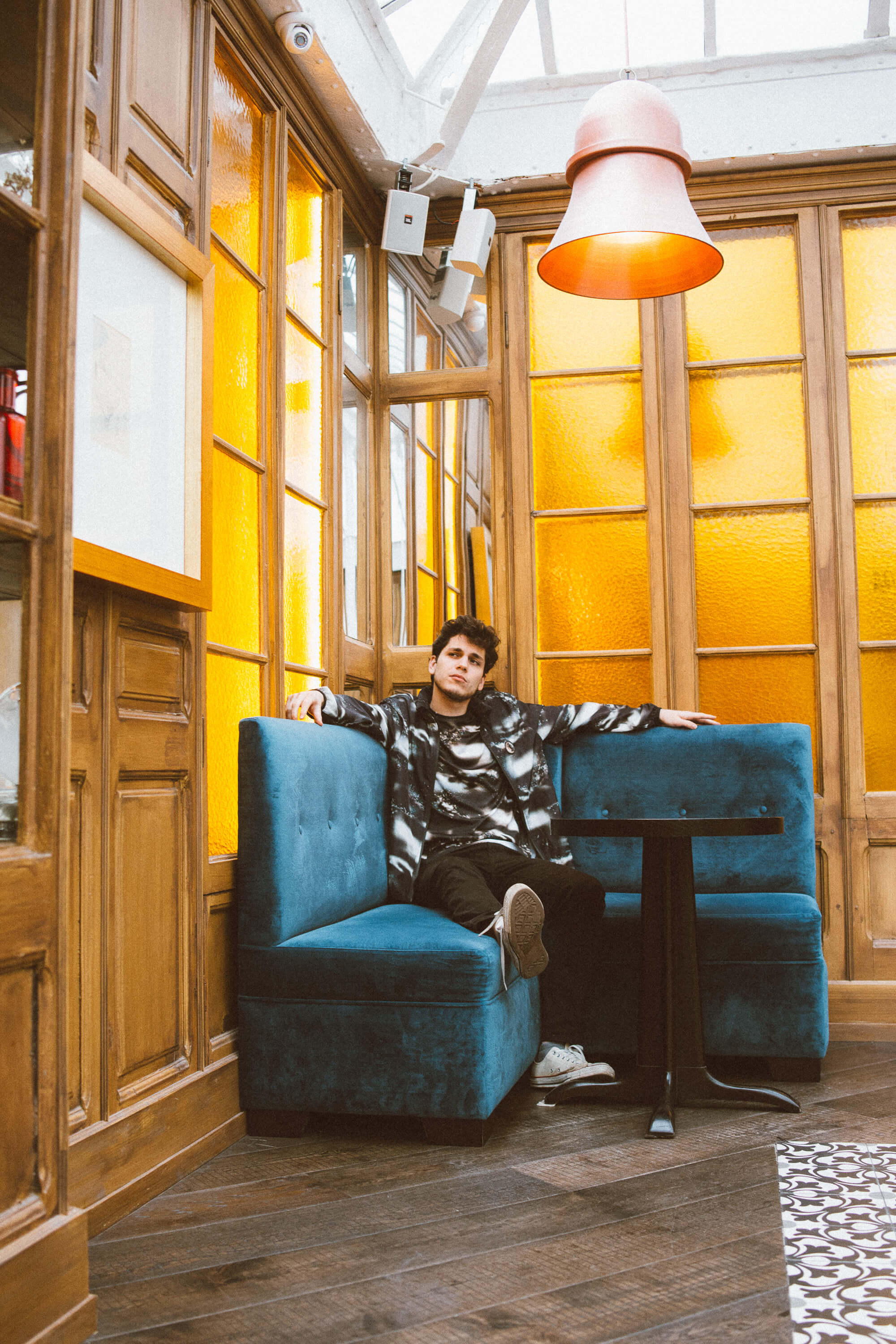
“I would rather play a Pirandellian character, psychological dreamlike, those characters that could exist in reality but who will never exist.”
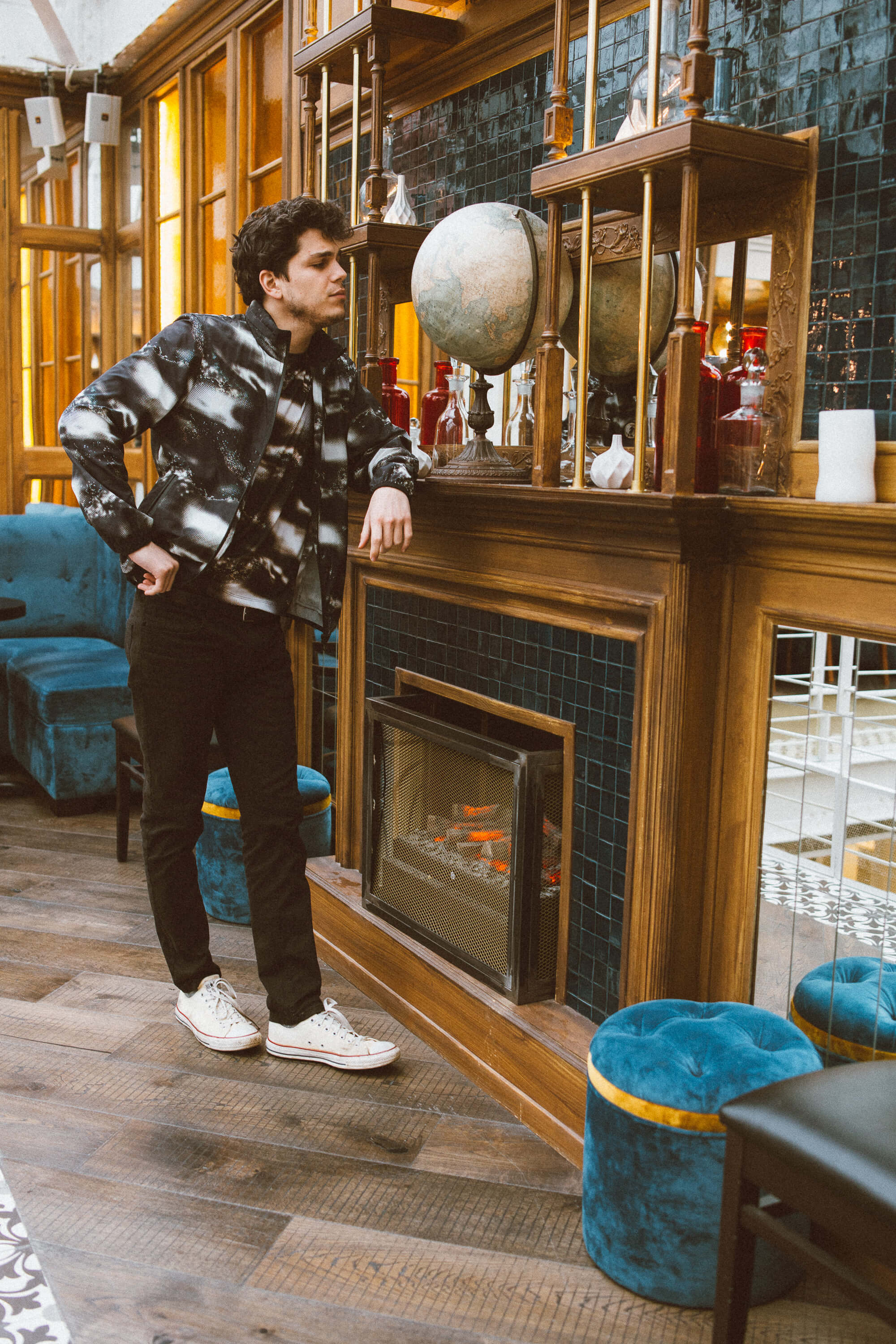
The last TV series you saw and liked?
_______________
The last one was “Patrick Melrose.” More than anything, it’s the last one I saw that really touched me. Then I started to see the one about Ted Bundy on Netflix and also “The Kominsky Method,” I really like Michael Douglas but even more Alan Arkin, I remember him from “Little Miss Sunshine.” The series is about two old men and their friendship at 75.
And a movie?
_______________
” Wreck-It Ralph.” The second one is not as beautiful as the first.
But this was not the film you asked about [laughs]. I have to find a way to seem serious. The last films I saw, but not for the first time, were “Full Metal Jacket” and “American Beauty.” This is the beauty and the downside of Netflix: it makes you a little bit lazy and you look at the same things.
A film that I saw at the cinema that I liked was “Diamantino,” a completely crazy Portuguese film. It’s about a soccer player who is stupid, but he has visions and he’s immersed in this doubt. If you love weird movies, watch this one.
What do you miss about each when you living in the other one?
_______________
In both cases, I miss my family. When I am in Paris, I miss my childhood friends, my family. When I am in Rome I miss my home, the one where I invest because it’s my home today, where I live with my girlfriend, my dog, my neighborhood.
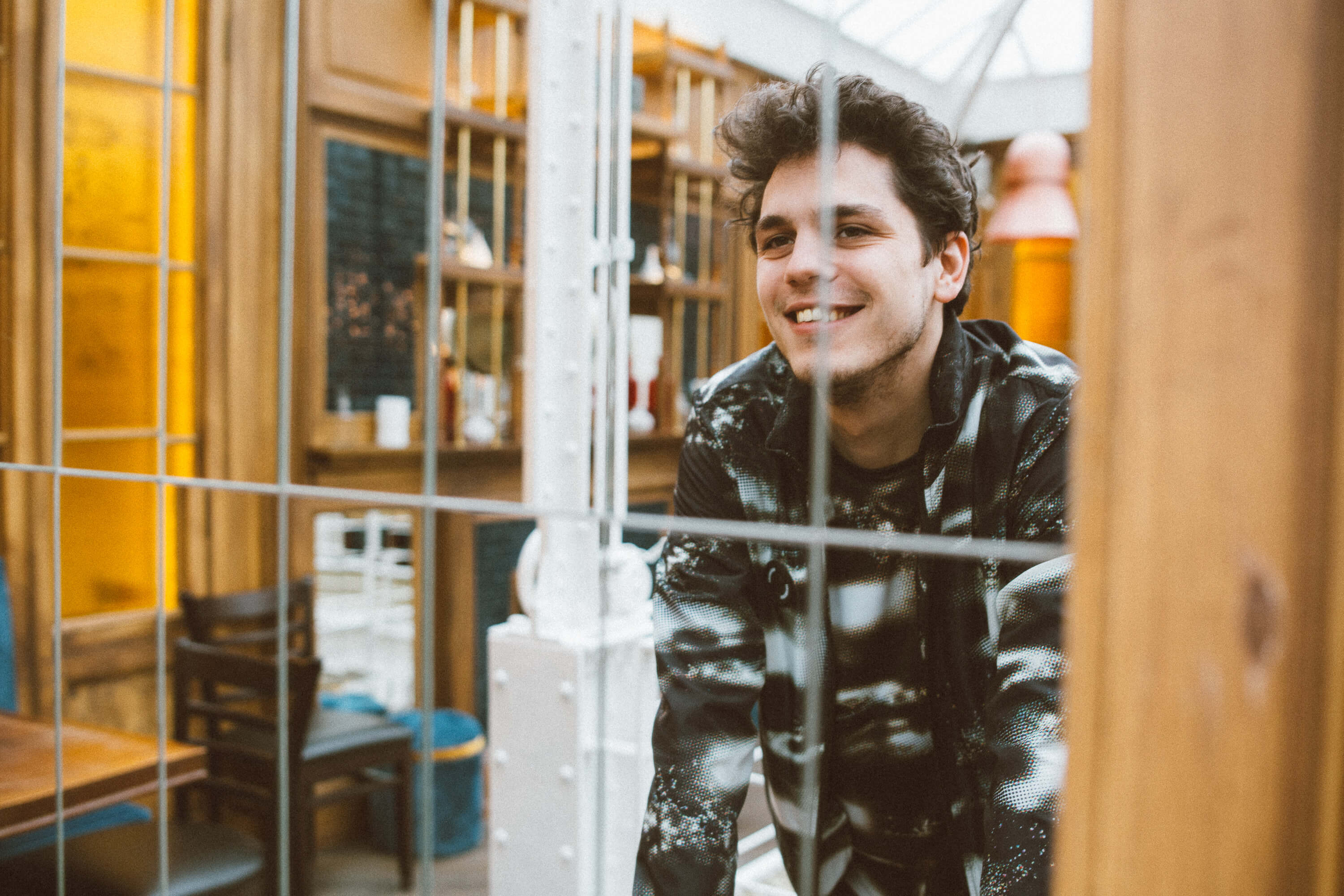
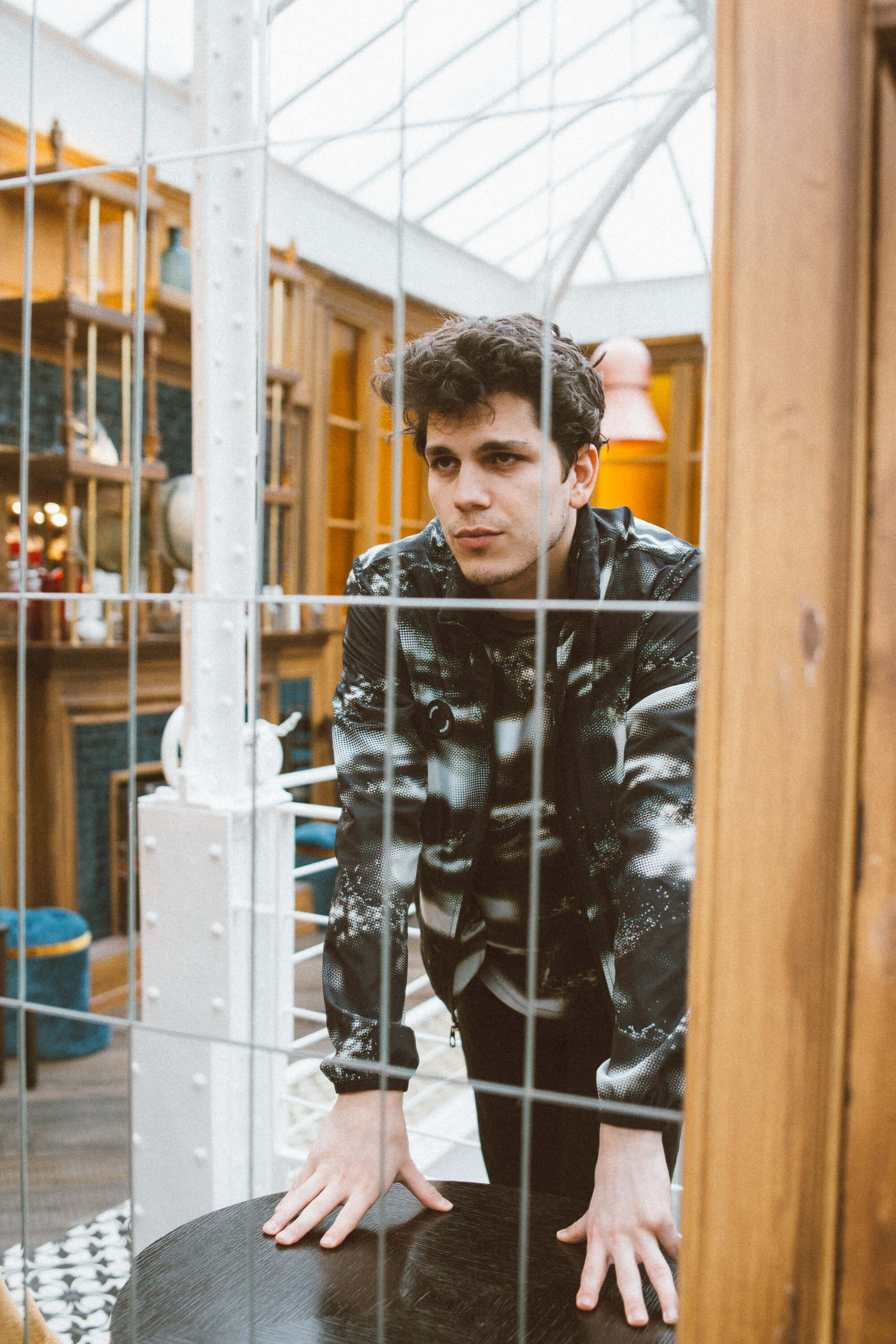
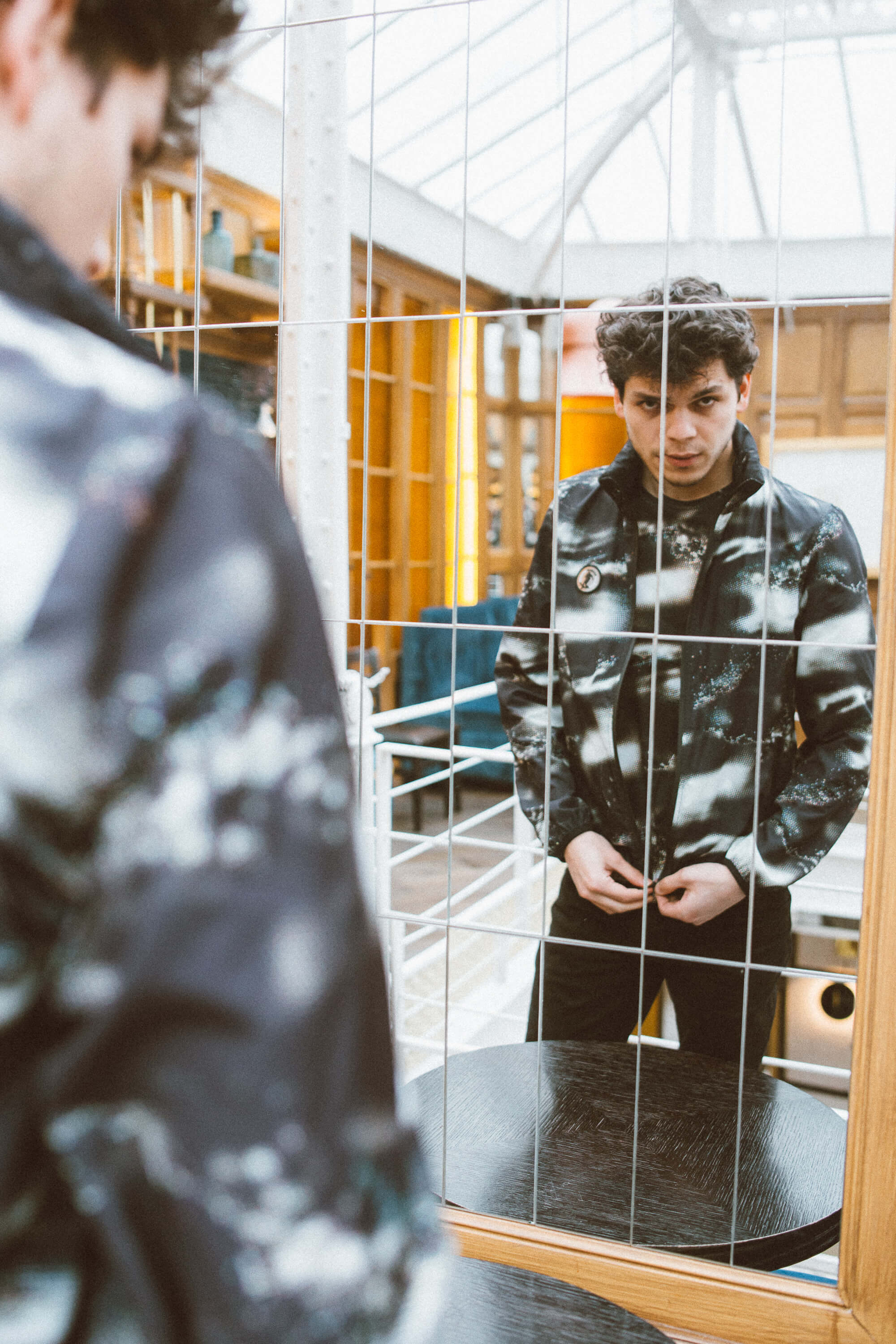
What’s acting for you?
_______________
I’ll answer you with a quote that bewitched me when I read it at the time. It’s from Sanford Meisner, one of the masters of American acting who created the Meisner method, one of Stanislavsky’s followers who separated from Strasberg and created his own movement of acting and teaching. The basic concept is summarized in this sentence, “Acting is the ability to live truthfully under given imaginary circumstances.” In my opinion, it’s fundamentally that, you can’t disregard a context that it’s not the context in which you physically are.
We are here today, at this table, we can start with delirium and I could project on this table the insecurities I had as a child. Yes, I can do it, but you have to take the table and you have to deal with it at the table for what it is.
The concept is that the circumstance makes you live what’s in the reality that surrounds you. And this is a beautiful philosophy in my opinion: to pay attention to what surrounds you on stage and off stage. Because only so, out of the scene you can catch elements that you can bring back and that make you appreciate the reality of life and, on the set, you have to have an eye not on yourself, but simply on what you have around to create and give truth to what you are saying and that what is happening.
Even the most unlikely thing in the world, whether you are in two or alone to say it, you can create it in a context: I can imagine that in a few minutes 8 aliens will fall from the sky. It’s unlikely, it takes work of imagination to make it happen in my head but when I live this reality, I can say that things can happen in this place even if they are not necessarily real. Then, it’s by using the reality of things that you can transcend from reality itself.
“Acting is the ability to live truthfully under given imaginary circumstances.”
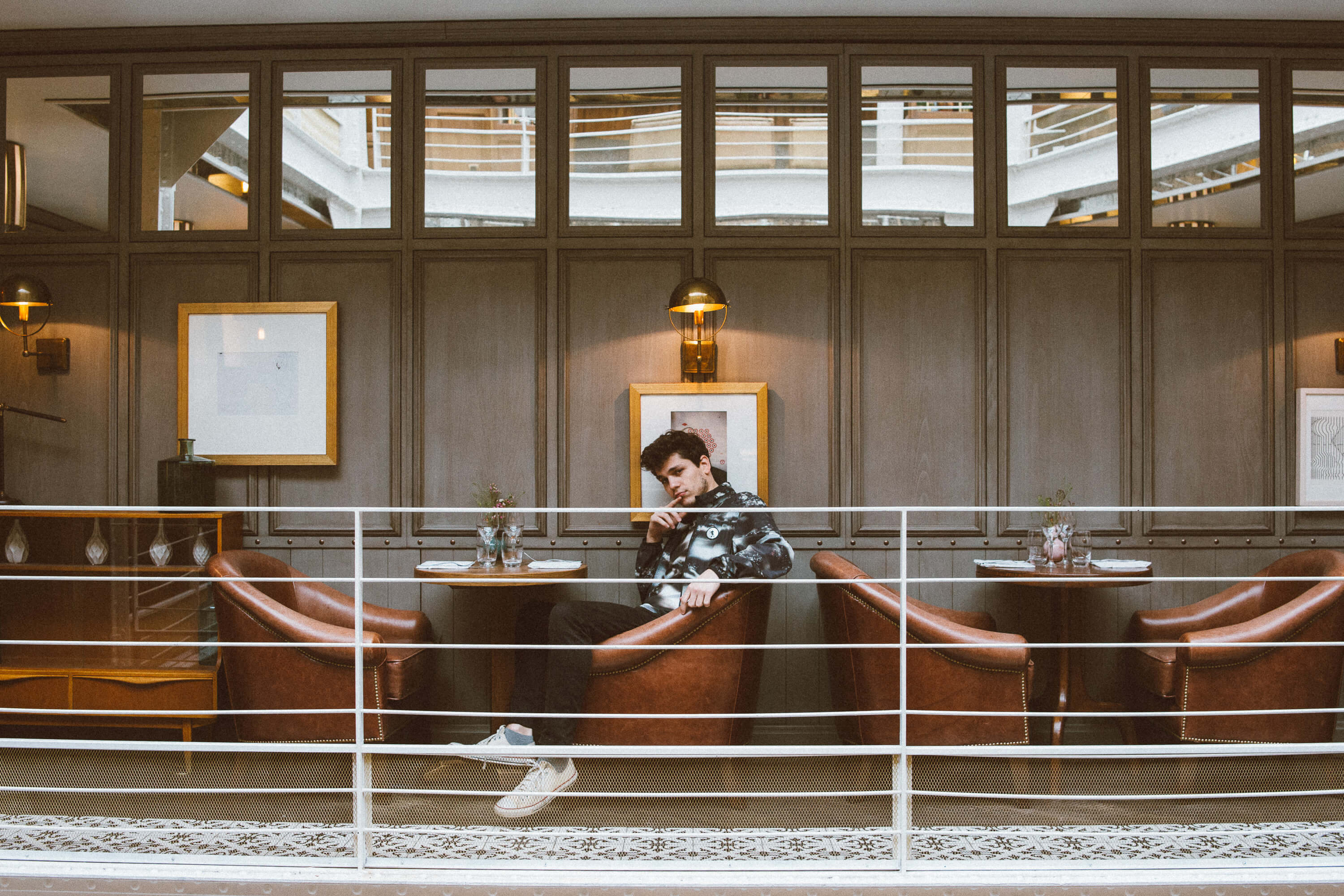
Upcoming projects?
_______________
For now, nothing in particular.
Now I’m writing and starting again to audition and I am struggling to find an agency in Paris because I wanted to wait a little more for the language, I didn’t want to have the typical Italian inflections into the French language. It’s only in the last 4 years that I have really been “living” the French language and it’s taking a great effort, as an aspiring French actor, to clean the language as much as possible from the Roman accent.
You have to live a language because words must have a direct connection with emotions. If for example, I say “amore,” it’s linked in my head to the memories of the first time I said the word “amore,” not “love” or “amour.” “Amore” has a meaning and it’s filled with meanings. By saying “love,” I don’t feel the same thing that I feel by saying “amore.” The process in my head is longer because I must first find that word in my head, say it, translate it and then feel it.
And so, you have already lost the opportunity to give those emotions that you had to show on camera.
Giving naturalness to words is a long process.
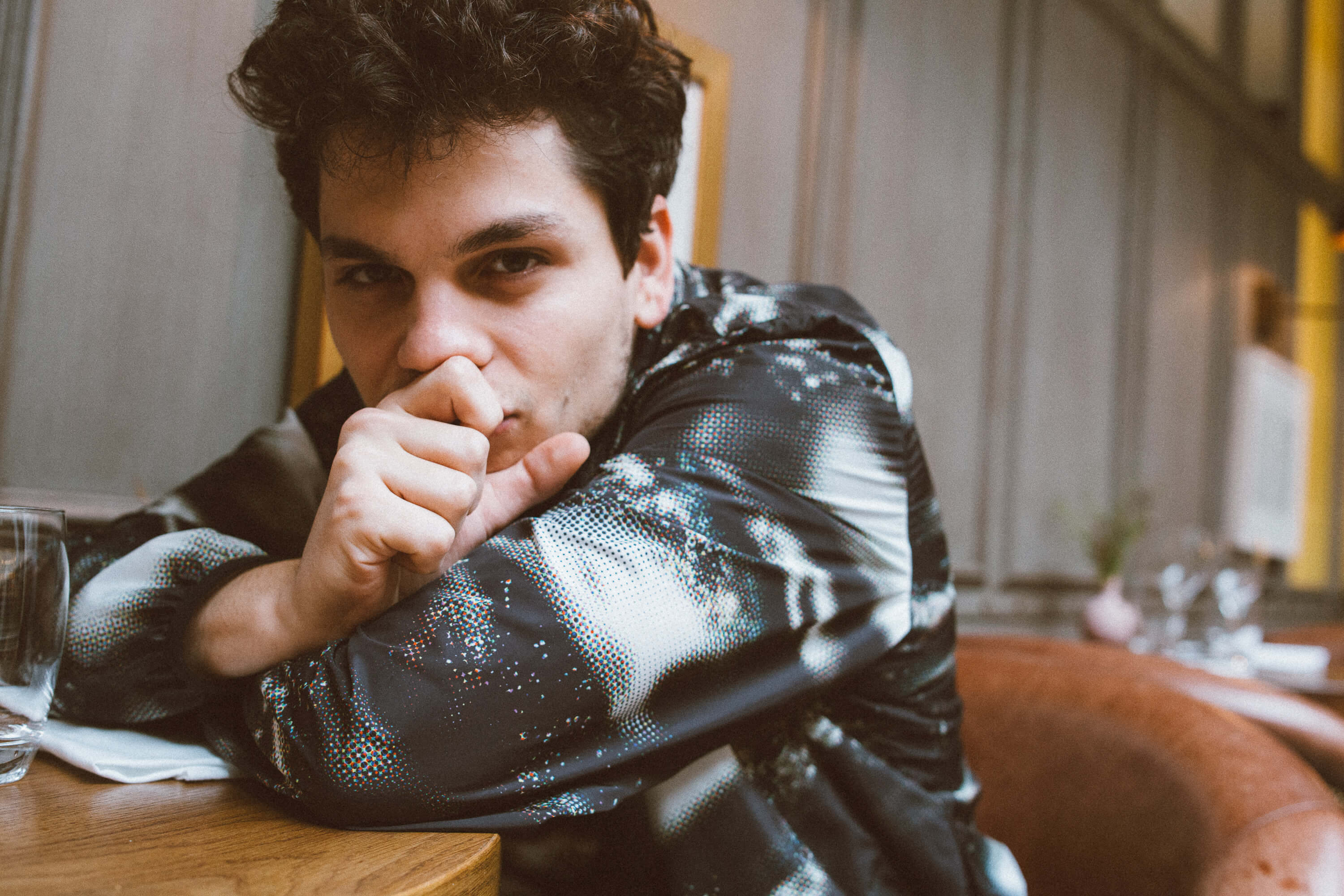
“…words must have a direct connection with emotions.”
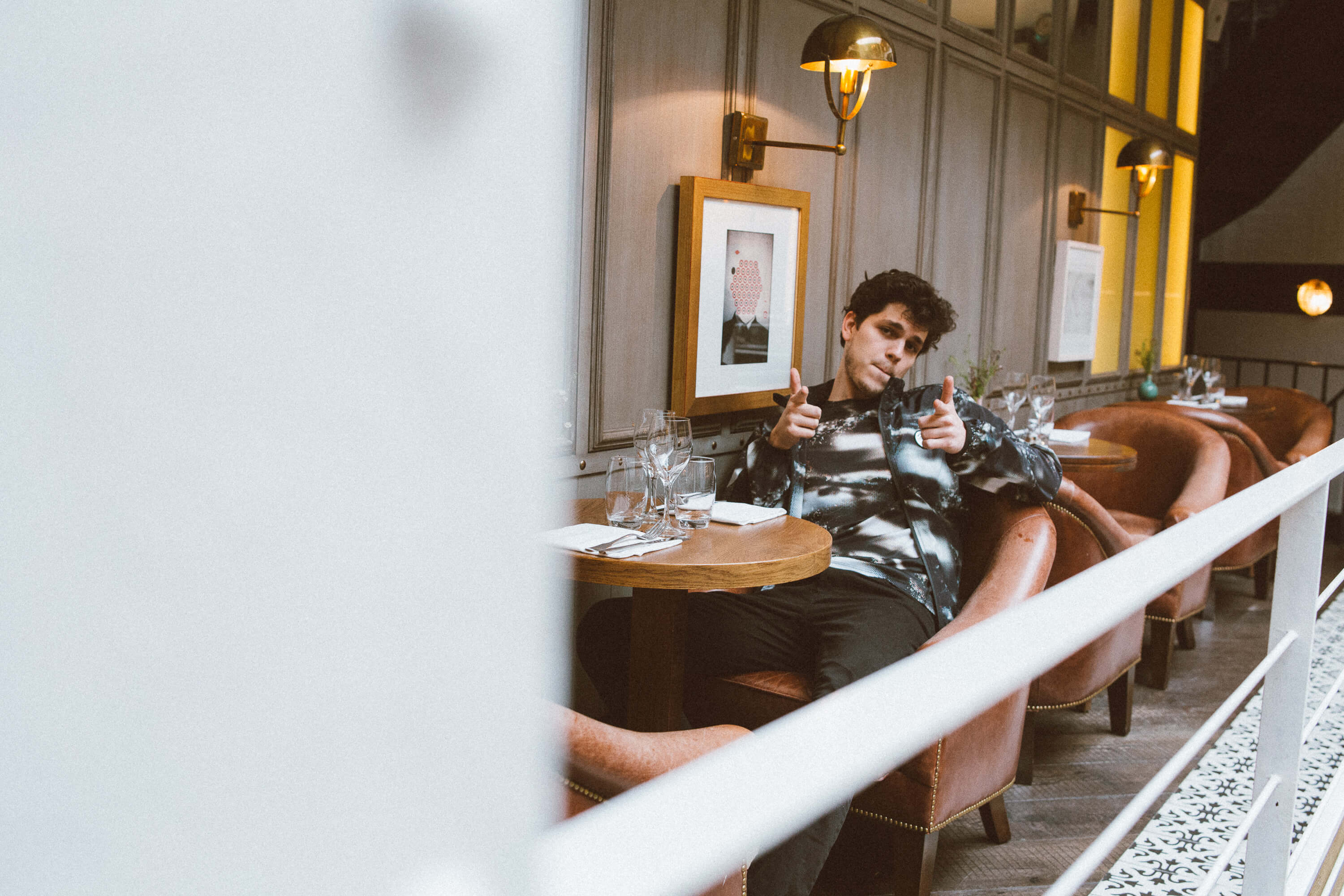
Photos & Video by Johnny Carrano.
Location Les Chouettes, Paris.
Styling: Sara Castelli Gattinara / Factory4
Look: BIKKEMBERGS – (Shoes: Converse)

